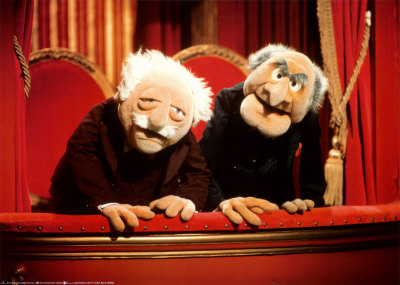
By Eric Jessen 12/6/09
A "merry romance," a "screen feast," which movie comes to mind: Frank Capra's It Happened One Night or Howard Hawks' His Girl Friday?
A Hawksian movie is rarely merry, but often a feast. It's hard to resist the easy charm of Capra's It Happened One Night: with Clark Gable, as a boozing recently fired reported Peter Warne and Claudette Colbert as the helpless heiress Ellen Andrews. Capra has a flair for the romantic and merry (It's a Wonderful Life and Mr. Smith Goes to Washington are great examples). But I have a hard time describing any of his movies as a feast. (I take my cues from Manny Farber, the painter and critic who points out, "the only subtle thing about this conventionalist is that, despite his folksy, emotion-packed fables, Frank Capra is strictly a mechanic, stubbornly unaware of the ambiguities that ride his shallow images.") But as lightly enjoyable as is It Happened One Night, Howard Hawks' His Girl Friday is raucous fun. Each scene is layered with gags, no joke goes uninterrupted by another, and as much as I love Gable and Colbert, Cary Grant as Walter Burns and Rosalind Russell as Hildy Johnson are just as wonderful. So His Girl Friday definitely deserves such compliments: certainly a feast and merry, I guess.
Both It Happened One Night and His Girl Friday are deserving of praise. So why then was the reaction to the two movies markedly different? It Happened One Night, despite poor early returns in the theaters, went on to become a huge hit, the biggest ever up to that point for Columbia Pictures. Gable feigning street smarts and peevishly nagging Colbert, and Colbert acting like a snobbish prude while flashing half a calf at the most opportune time, glad to let him - this purportedly quintessential screwball comedy melted Great Depression era hearts. It captured all the major Academy awards (Best Picture, Director, Actor, Actress and Writing), a feat unmatched until One Flew Over the Cuckoo's Nest. It catapulted Frank Capra into the stratosphere of mainstream success (although to the eventual disdain of highbrow critics). On the other hand, His Girl Friday had only moderate success, and was pooh-poohed by the New York Times and the usually reliable Otis Ferguson.
I wonder if in a time of the Hays Code (separate beds and no "excessive or lustful kissing") the vastly different portrayal of women in the two movies had anything to do with their success. Mid 1930's audiences ate up the down and out reporter barking orders at the overly pampered débutante. It Happened One Night tickled their fancies for the underdog, a spontaneous elopement, and a shirtless Clark Gable. The fact that Gable's character loved to hear himself holler and refused to give Colbert's character an ounce of respect never crossed their minds. By 1940 I guess they were still not ready to see Rosalind Russell jostling with Cary Grant as one of the guys.
But to understand fully why His Girl Friday was unsuccessful compared to It Happened One Night, it is important to note that His Girl Friday was a remake of the critics and consumer's darling, The Front Page. Maybe audiences were just annoyed with the regurgitation of a favorite. (I'm dreading the rumored upcoming remake of The Third Man staring Leonardo Dicaprio.) Although, His Girl Friday is not exactly like the original: the Hildy Johnson character was a man in The Front Page, and Walter Burns was trying to prevent him from leaving the paper to get married. In 1940 critics and audiences may have seen His Girl Friday as the tarnishing, or even feminization of a classic. Frank S. Nugent of the New York Times began his review of His Girl Friday by saying, "They've replated The Front Page again, have slapped His Girl Friday on the masthead and are running it off at the Music Hall as a special women's edition." Do you detect a hint of bitterness? Did the sourness in his words stem from some kind of Freudian women-envy or did he just love The Front Page that much? If only Roz's Hildy had left Bruce (Ralph Bellamy) at the altar to run away with Walter. But could you ever see her in a wedding gown?


